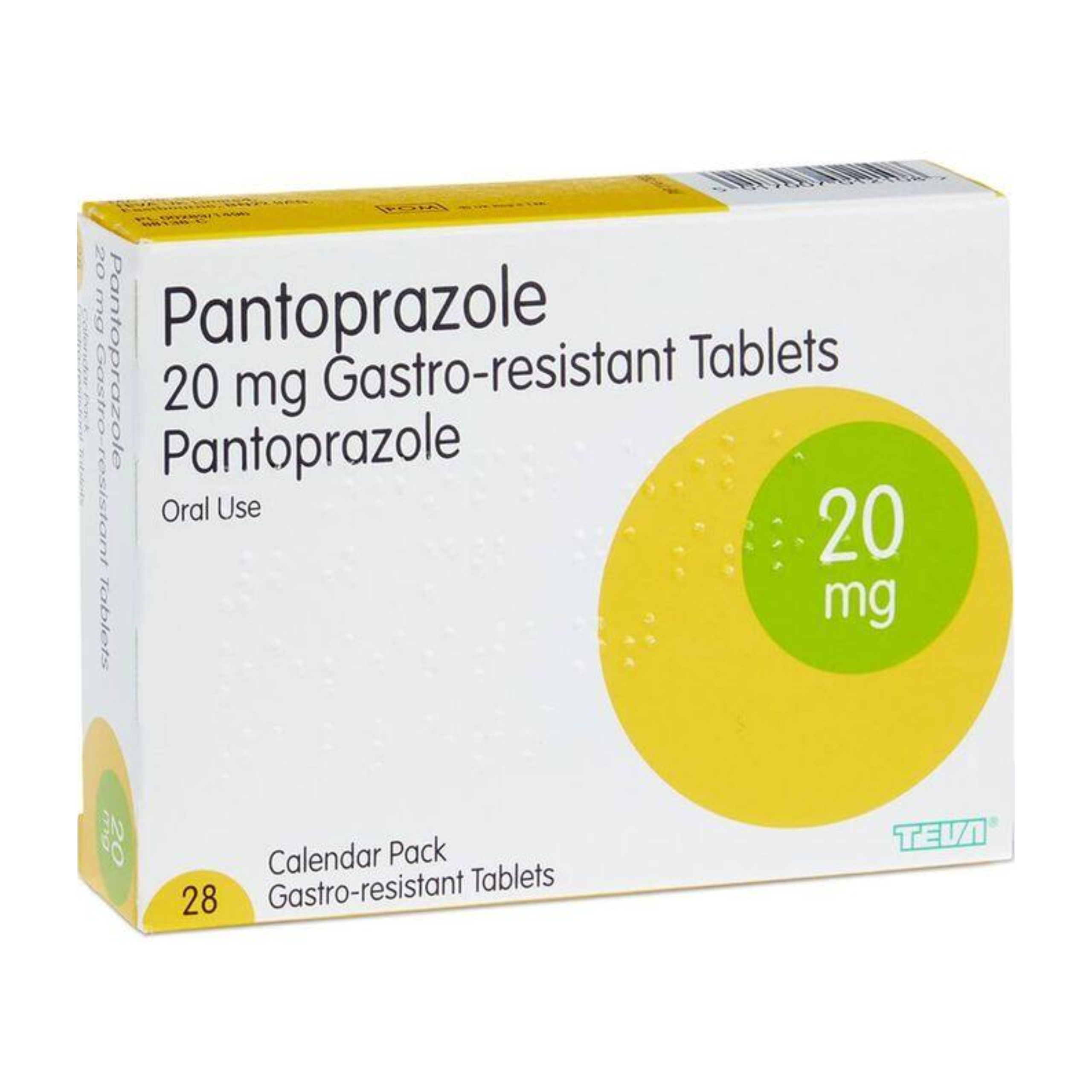Pantoprazole

Fastest delivery:
Order by 03:00pm
-

Free delivery over £50
Fast, tracked delivery from £2.95. Arrives as quickly as the next working day in discreet packaging.
-

100% UK-based pharmacy
Our team of doctors and prescribers, and our support staff, are all UK-based.
-

Free support and advice
We're on hand to offer free support and advice by email and telephone (Mon - Fri 08:30 - 17:00).
-

We’re rated 4.9 out of 5
based on over 17,000 reviews collected on Google and Reviews.io.
Description
What is Pantoprazole?
Pantoprazole is a proton pump inhibitor (PPI) that reduces the production of stomach acid. It is used to treat acid-related conditions such as GERD, stomach ulcers, and damage to the esophagus caused by excess acid. Pantoprazole helps to heal and prevent acid damage to the stomach and esophagus, relieving symptoms like heartburn and difficulty swallowing.
How Does Pantoprazole Work?
The stomach has a muscular ring that seals the oesophagus called the oesophagal sphincter. When swallowing food, the sphincter opens, allowing food into your stomach. It squeezes tight to prevent gas and food from returning backwards. Otherwise, acids irritate the oesophagal lining. Pantoprazole works by blocking the enzyme in the stomach that produces stomach acid. By lowering acid levels, it helps reduce irritation in the stomach and esophagus, allowing them to heal. This action also prevents the formation of ulcers and other acid-related complications.
Warnings
Talk to your doctor in case you are on other medication before taking Pantoprazole to reduce indigestion. The drug may be unsuitable for you if you have:
- Low levels of magnesium in your blood.
- If you are pregnant, plan to become pregnant, or are breastfeeding.
- Benefits of taking Pantoprazole if you are 70 years of age or older.
- Long-term use may increase the risk of bone fractures and vitamin B12 deficiency.
- Not suitable for people with liver disease without medical consultation.
Directions
Use as instructed by your medical provider and read your instructions:
- Swallow the tablet once a day or as directed by the doctor.
- Pantoprazole can be taken with or without food. Do not split, crush, or chew the medication.
- If you are taking the granules, take your dose 30 minutes before a meal. You may mix them with apple juice.
- Take medicine at the same time each day to help you remember for the prescribed duration.
- If you miss a dose, take it soon as you remember it. However, if it is almost time for your next dose, skip the missed dose and continue your regular dosing schedule. Do not take a double amount to make up for a missed dose.
Ingredients
Each gastro-resistant tablet contains 40 mg of pantoprazole (as sodium sesquihydrate).
Pantoprazole also contains Sodium carbonate, anhydrous, Mannitol (E421).Crospovidone, and Povidone K90 and Calcium stearate.
Side Effects
Pantoprazole may cause side effects to some patients. They include;
- Headache
- Nausea
- Vomiting
- Gas
- Joint pain
- Diarrhoea
- Dizziness
Seek medical attention if serious side effects occur.
FAQs
1. How should I take Pantoprazole?
Take one tablet daily, usually 30 minutes before a meal. Swallow the tablet whole without crushing or chewing.
2. How long does Pantoprazole take to work?
You may start to feel relief within 2-3 days, but full benefits can take up to 1 week.
3. Can I take Pantoprazole with other medications?
Some medications may interact with Pantoprazole, so consult your healthcare provider about other drugs you're taking.
4. What should I do if I miss a dose?
Take it as soon as you remember, unless it's near the time for your next dose. Do not double up doses.
5. Can Pantoprazole be used for long-term treatment?
Yes, but long-term use should be monitored by a healthcare provider to avoid risks like vitamin B12 deficiency or bone fractures.


